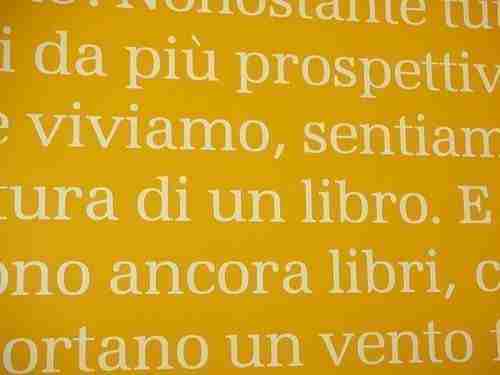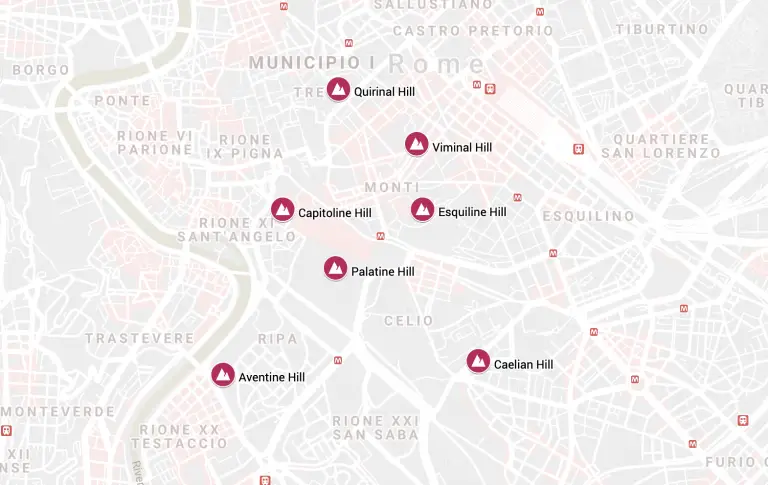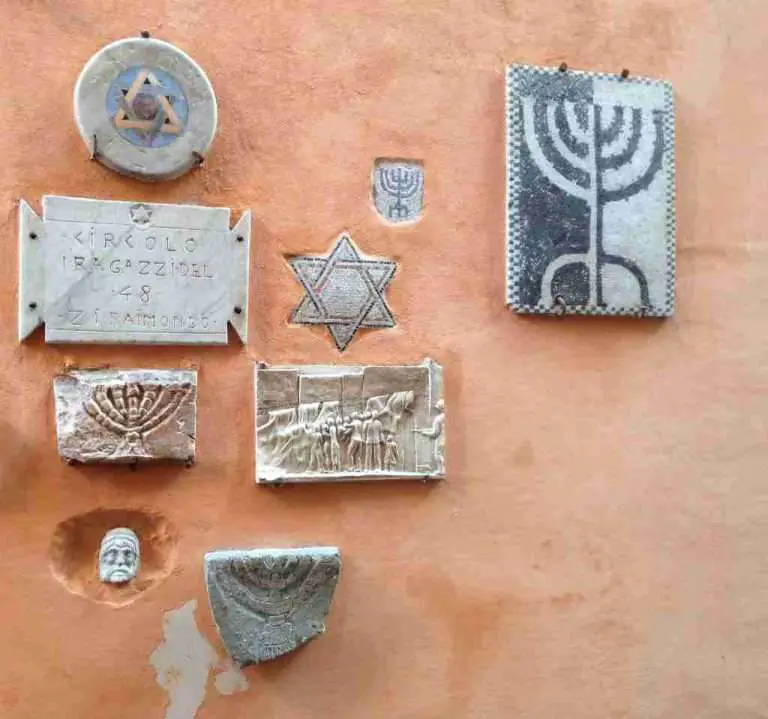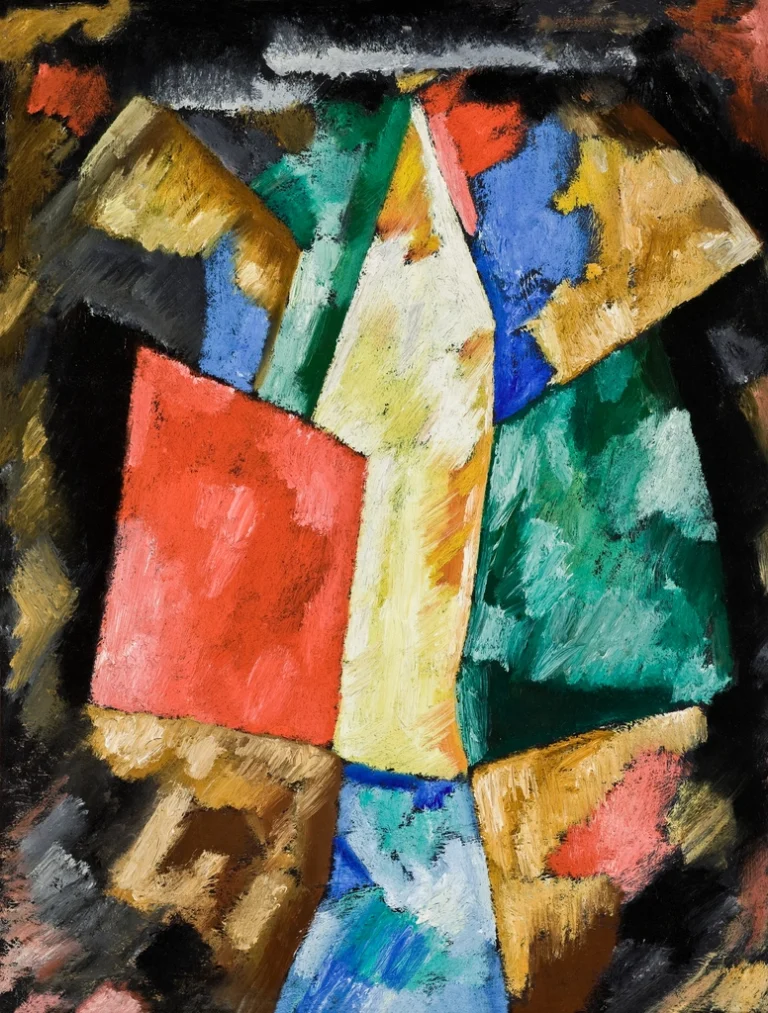
Since I started Five Favorites, a feature to showcase the expertise and interests of guest Italophile bloggers, we’ve seen posts about Lucca, Beaches in Calabria, and Recipes from Rome.
This week’s installment, about the Italian language, is from Jessica Spiegel of BootsnAll’s WhyGo Italy guide. And, it’s so appropriate that Jess would write about language as she is so skilled at making words dance upon the page (or screen).
Jessica’s list of Five Favorite Italian Words also got me thinking: what are your favorite Italian words? Feel free to comment after the post with your faves (though keep it clean – this is a family blog!).
I think I, too, will have to save my favorite words for the comment box as I’m too scombussolata* right now to think of a few!
Five Favorites: Italian Words
I’ve been studying Italian on and off since 2001, and although I’m nowhere near fluent, I can get by in most situations. Along the way, I’ve come to have an odd affection for certain Italian words. Sometimes that has to do with what the word means or how it’s used, but sometimes (as you’ll see below) it has almost nothing to do with the meaning and almost everything to do with how the word sounds.
One of the things that drew me to Italian in the first place – before I’d been to Italy or even planned to visit – was how the words felt in my mouth as I said them. There is something very tactile to me about speaking Italian, something very sensual. The sharp consonants are so clear, the vowels so bright, and every time I get to roll my Rs (giving the roof of my mouth a little massage with the tip of my tongue) I’m a happy girl.
In short, I love speaking Italian – even if I don’t know what I’m saying half the time.
So when Melanie asked me to contribute a post to her “Five Favorites” series, coming up with a list of my five favorite Italian words was only challenging in that I could easily make a list of 20 or more. Cutting it to five took some doing.
Here are five of my favorite words in Italian – along with how to say them, what they mean, and why I love them.
zanzara
pronounced: zahn|ZAH|rah
This was one of my first favorite Italian words, and it remains so even though I know it means “mosquito” and it is therefore the bane of everyone’s existence during Italy’s summers. There is just something so crazy wonderful about saying those Zs – the buzzing on the end of my tongue – and I love how the word is kind of onomatopeic as well.
As an aside, knowing this word actually came in handy during one trip to Italy, too. After staying with cousins in the Bordeaux region of France and getting eaten alive each night by French mosquitoes, I was later able to ask a pharmacist in the Cinque Terre for “qualcosa per le zanzare – mi mangiano!” (Meaning: something for the mosquitoes – they’re eating me!) I left the pharmacy with exactly what I needed, both to stop the itching and prevent further bites. Mission accomplished, thanks to my strange word fascination.
basta
pronounced: BAH|stah
I don’t even remember when I learned this word, but it’s become one I use frequently – both with Italian speakers and those who don’t speak Italian. It’s easy enough to explain to the latter group that it means “enough,” and when it’s said with some force I think it’s more jarring than just yelling, “Enough!” in someone’s face. But maybe that’s just me. Listen closely on your next trip to Italy and you’ll hear it all over the place – mothers saying it to their kids, mostly. It’s a handy one, and easy to remember.
scombussolato/a
pronounced: skohm|booss|soh|LAH|tah -or- |toh
Upon arriving at Italian class one night, the teacher asked how I was feeling. The problem was that I didn’t know how to accurately describe my flustered state in Italian – so I had to ask, “How do you say ‘discombobulated’ in Italian?” In her reply, I was gifted another of my very favorite Italian words. Now I tend to say that I’m feeling scombussolata, no matter how I really feel, because it’s so fun to say. Note that discombobulated women have an “a” at the end of their word, while discombobulated men have an “o” at the end of theirs. Just in case you weren’t discombobulated enough.
dai
pronounced: die
This is absolutely one for the “I love using it” column as opposed to “I love how it sounds.” It’s slang-y, roughly translating to “come on,” and used about the same way. Which means you hear it often. You hear it from people watching soccer matches or other sporting events (dai, what the hell kind of a kick was that?). You hear it when people are talking with friends and in disbelief over something someone just said (dai, no way!). You hear it when people are offering encouragement (dai, you can do it!). It’s an incredibly useful expression, and even though it’s informal (meaning you don’t want to test it out on the nice Italian signora at your hotel) it’s not vulgar (so if she happens to hear you say it to your kid you’re just fine).
andiamo
pronounced: ahn|DYAHM|oh
As hard as it might be to narrow the list of Italian words I love down to five, picking my #1 favorite is a cinch. It’s no contest. “Andiamo” has been my favorite Italian word since I learned it during my first Italian class so many moons ago. In addition to being fun to say, the fact that it means “let’s go” speaks to a couple things I love dearly. Firstly, it’s about inclusion – let’s all go, together. Sure, it can be used in an impatient way if your friends are lagging behind and you want them to hurry up, but I prefer that to abandoning them altogether and going on alone. Second, it’s about travel, something near and dear to my heart. Let’s go. Where? Who knows. Doesn’t matter. Let’s just go.
Jessica Spiegel is a travel writer with the BootsnAll Travel Network who has a confirmed case of Italophile-ism. She writes BootsnAll’s Italy travel guide and is in the process of getting the paperwork she needs to move to Italy.
Photos © Alessandra Cimatti, notafish, Jessica Spiegel
Last updated on May 17th, 2023Post first published on January 15, 2010







